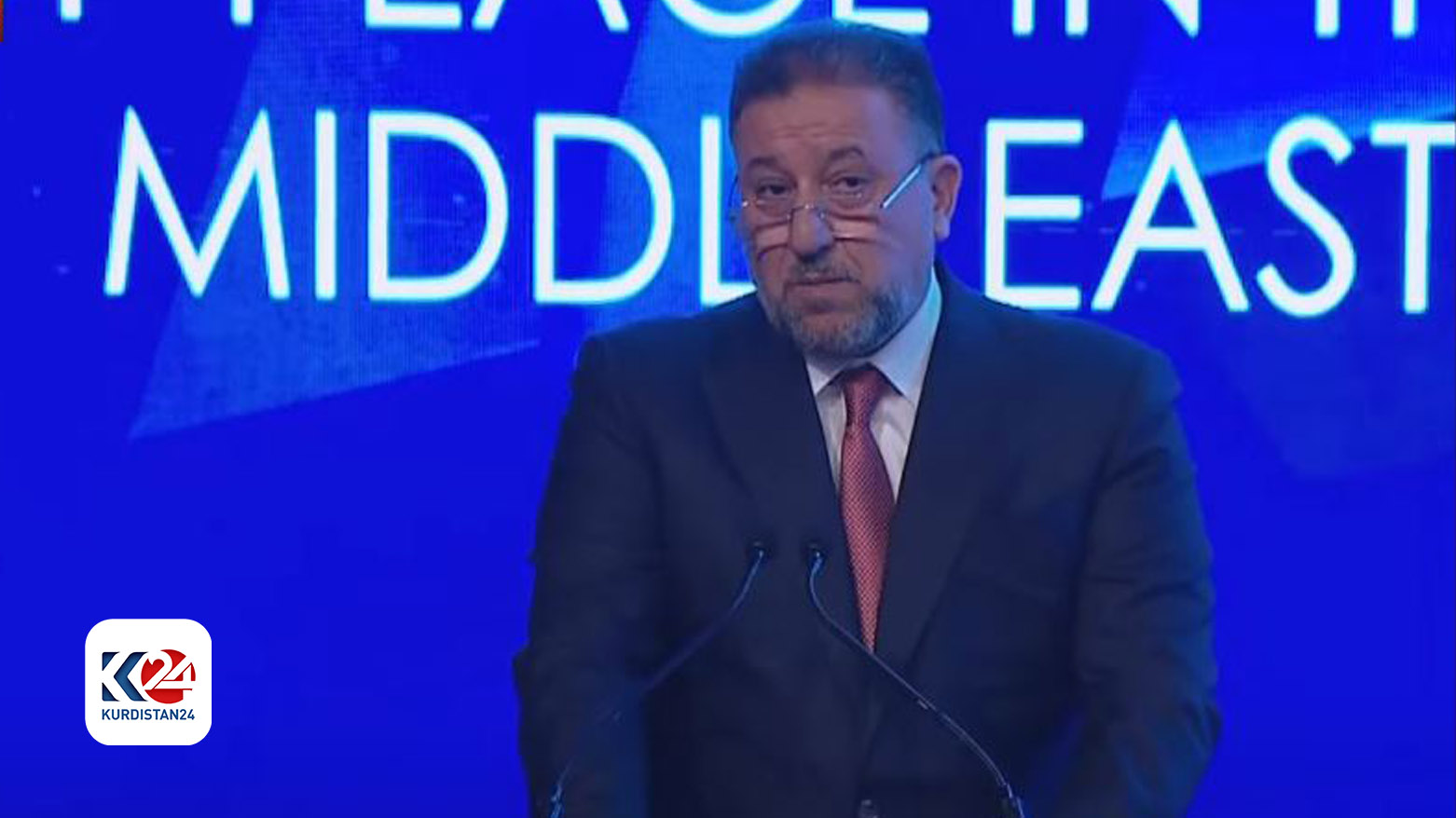Sunni Alliance Leader praises Kurdistan Region's stability, highlights Middle East challenges at MEPS24 forum
Addressing current regional challenges, al-Khanjar emphasized, "Poor security conditions in the Middle East, contemporary challenges, and the emergence of ISIS have destabilized the entire region. These are the most discussed topics at this forum."

Nov. 23, 2024
ERBIL (Kurdistan 24) – Khamis al-Khanjar, leader of the Sunni Sovereignty Alliance, addressed the fifth Middle East Peace and Security Forum (MEPS 2024) in Duhok on Saturday, highlighting Kurdistan Region's stability while examining broader regional challenges.
"After Sykes-Picot, we now witness stability and peace in the Kurdistan Region," al-Khanjar stated during his speech.
He noted that the region's borders were "drawn according to the interests of the great powers of that time, based on secret agreements," adding that "the peoples of the region were not consulted, and their wishes were not considered in border demarcation."
Addressing current regional challenges, al-Khanjar emphasized, "Poor security conditions in the Middle East, contemporary challenges, and the emergence of ISIS have destabilized the entire region. These are the most discussed topics at this forum."
The Sunni leader advocated for a methodical approach to regional issues: "We shouldn't address all these challenges simultaneously. Instead, we need to discuss them one by one. The state holds primary responsibility in Middle Eastern policy distribution. It cannot ensure development without proper distribution of resources and power."
Al-Khanjar highlighted the historical context: "Our region has faced the most challenges since World War II. Iraq has consistently been a source of crises and challenges. While identifying problems that led to instability might be straightforward, we need action rather than merely repeating what Western politicians and researchers have already said."
He elaborated on systemic issues: "We've experienced loss of democracy, corruption, lack of judicial systems, and weak state institutions. These might be symptoms of a deeper regional problem, particularly following World War II and the collapse of the Ottoman Empire."
Emphasizing the forum's significance, al-Khanjar noted, "Perhaps no countries are as crucial to this forum's proceedings as the Arab-Islamic nations. In the Kurdistan Region, post-Sykes-Picot, we now observe stability in Erbil."
The MEPS forum, hosting 124 academics from 40 different countries with 73% first-time participants, provides a platform for discussing regional security and stability challenges.
Al-Khanjar's comments reflect the complex historical legacy of the Sykes-Picot Agreement and its continuing impact on regional dynamics, while acknowledging the Kurdistan Region's relative stability as a positive example in the region. His remarks also highlight the ongoing challenges facing Iraq and the broader Middle East in establishing effective governance and security frameworks.